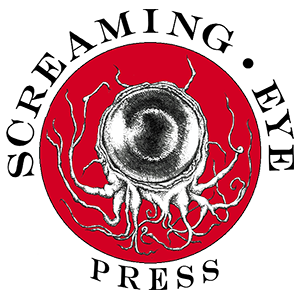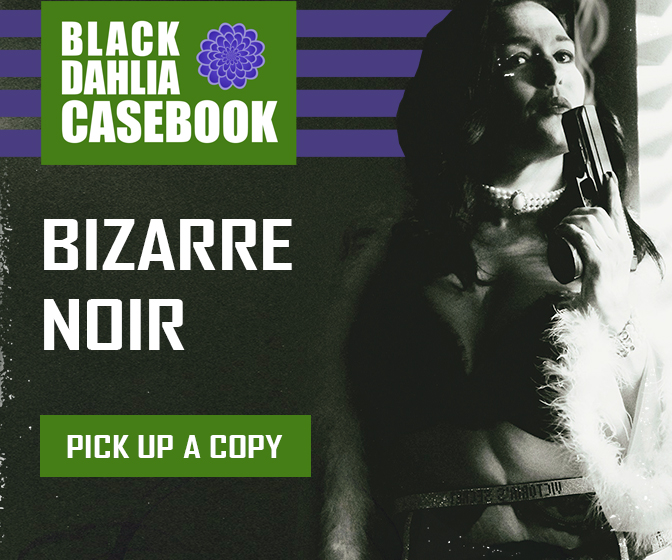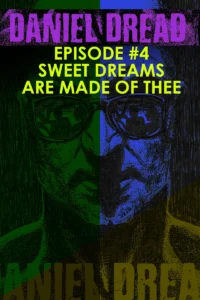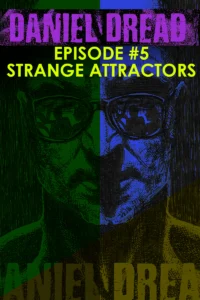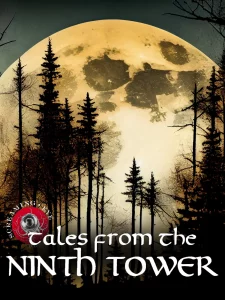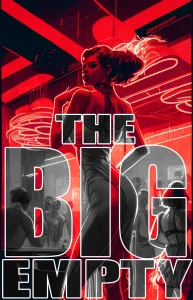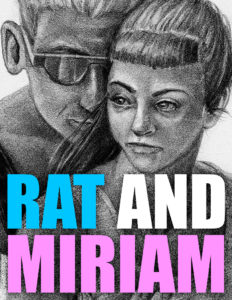Silent Legacy
A Short Story Written by Susan Elizabeth GrayYou will never know my real name, though I came to know his. He taught me that, among other lessons that have held me in good stead these many years, in many cities, and across several continents.
In good faith I must tell you that I was not raised a gentleman, nor was I educated in the traditional sense until I reached the age of ten. The only childhood memories I have are of the streets of Whitechapel and Spitalfields, sleeping on piles of rags in whatever doorway or stable yard I could find, fighting with the rats for food scraps outside eateries, and running errands for the doxies to earn a half-penny or two to buy a bun.
You may wonder, Dear Reader, how a penniless street urchin became educated, quite literate, in fact, and in favorable circumstances here in these United States. That part of the tale will be found later in my missive, and you shall hear it, with patience.
Back to my life on the streets. It was the devil’s luck alone that led me to Buck’s Row in late August of the year of our Lord One thousand Eight Hundred and Eighty-eight, scarcely an hour past midnight. In search of an empty doorway, I came upon a man in a great dark coat that billowed at the sides, a soft felt hat on his head, pressing a shabbily dressed woman up against the brick wall. I made to skirt over to the other side of the Row, when I heard a sharp cry, not the usual sort made in the nightly street couplings of Whitechapel, then silence. I turned to look and saw a flash of silver in the pool of light from the gas streetlamp, a glint of a thin blade as the man thrust it into his companion.
I froze, afraid at first to move and be discovered, but then became mesmerized by the grace of the man’s movements. It was like a dance, how he moved his arm and wielded the blade, dipping and rising as it cut through first the woman’s clothing and then her skin. A smell of copper filled my nose, along with another oily scent, as he pulled long gray-purple ropes from the woman’s body and draped them across her shoulders.
Something stirred in me then, came alive, deep within that I had no foreknowledge of existence. It was as if I had swallowed a worm, or one of the weevils ever present in the crusts of bread I ate had taken root in my gut and filled my body with its larva. I felt a nameless energy, and desire.
He carved no more than five minutes, ten at the most, and it was beautiful. Finished, he wiped the blade clean on a scrap of the woman’s clothing. He turned to look at me then, the hat pulled low on his forehead. His dark eyes pinned me in place, as he raised an eyebrow and pointed the blade of the knife at the collapsed woman, then back at me.
“Are you afraid, boy?” he said.
I shook my head, not trusting my voice.
“Good,” he said, and put his fingers to his lips.
I nodded, and knew he understood that I would heed his direction and not say a word of what had transpired. I watched, motionless as he walked down the alley, then came to my senses and began to run after him, to follow, but by the time I had come to the corner, he was gone.
All through the following week, I searched for him, especially in the hours after midnight. I stayed in Buck’s Row several nights, but then realized he would not come back to the same place. So, I went further afield, several blocks in each direction. Once I thought I had found him, sure I had recognized him by his hat and brown great coat, only to be given a gruff slap and told to be gone or I’d receive a beating. I had almost given up hope when nary the next day, I espied him near Hanbury Street, close to dawn, about to step out of a stable way. I pressed myself flat against a doorway, then began to follow. I’d hardly gotten two blocks when he stopped suddenly, turning swiftly around to catch me by the wrist.
“Are you following me boy?” he said in a low growl, lips barely moving under his heavy moustache.
“I mean you no harm, sir,” I managed to say.
“You got a good look at my work last week, did you not?” he said, his eyes narrowing.
“Yes, sir,” I managed to say.
“And did you like what you saw?” he said.
“I did sir,” I said, and he released my wrist, and took a step back.
“Well then,” he said, folding his arms across his chest. “You are an unusual boy. A boy I might have a use for.”
From that day on, we were a team. Oh, not a team of equals to be sure, but I deluded my young self into thinking so. He took me back to his room in a half-way decent boarding house on the outskirts of the West End. He let me sleep on a pallet on the floor and gave me coin to buy food.
During the day, I was alone, content to rest above the street and have a full belly. But I accompanied him on nightly journeys, serving as look out for anyone who might be passing by, and pointing out likely corners on which the doxies would ply their trade. My appearance was the same, at his insistence as my ragged and odiferous clothes allowed me to blend in and be free from notice.
I proved my worth a little more than a fortnight from our first meeting. We were in Dutfield’s Yard, an hour past midnight, and he was just about to get started. He’d lured the doxy in quite easily, and just as easily drew his knife across her throat. I was near the gate, eyes on the street. I heard footsteps, and the scraping of a constable’s baton against the brick walls, the sound of which I had long been familiar. I gave the signal, and he dropped that night’s quarry to the ground, and we quickly made our way through the back gate.
But fortune smiled on us a half an hour later, as we came upon a deserted corner near Mitre Square. This time, he brought me closer, and though I kept watch, I was able to sneak glances as he worked, and hear him as he described what he was doing.
“Begin with a long incision starting just under the collar bones, then slash the sides. Pull the flesh back, and remove the intestines out, gently. You don’t want them to break or get pierced by the knife; the odor is insufferable. And you must be certain to take the uterus out completely. That’s where they carry their spawn, my boy.”
It took no more than minutes until he said, “And finally, the face. It’s what draws us in, and the invitation in the eyes.”
I watched as he slashed through each eyelid, and made deep cuts on each cheek. He wiped the blade on her dress, then we were off.
The next morning, I came back to the room with a bag of fresh baked Chelsea buns and several newspapers at his request. We sat, sipping watery tea, as he read.
“These rags have got it all wrong, my boy,” he said, wiping crumbs from his moustache. “They think I’m a monster, but how is ridding the world of these Salomes, these Magdalens, these harlots, an evil? I hone my skills and do a public service at the same time.”
He gestured toward the papers once more and scoffed. “They print these letters, as if I would pen such dross with spelling errors and nicknames. No such ignoramus could do what I’ve done and leave the police with nary a clue.”
“Mark my words, boy,” he said. “They will never know me.”
Afterward, we made a game out of it, each day he read the papers to me, and we watched the police chase their own tails trying to catch him. It made me laugh, listening to their theories and speculations, knowing how far they were from the truth of the matter at hand.
We kept busy through the month of October, though none of his work was discovered by the police, or the jackals of the press. He relied on my knowledge of the streets, and, to our mutual delight, knowledge of where the dung heaps were, the offal scraps tossed, and chamber pots emptied. A body taken there, dug into the bottom of the pile, would decay politely, its odor masked by the reeking refuse above.
And then came the last. Number 13 Miller’s Court in Whitechapel, the ninth of November.
This one had her own lodgings, and there was no need for me to be look out.
“We’ll take our time,” he said. “I’ll show you how it should be done.”
And show me he did, with that sharp blade. Oh, it was a sight to be seen, even to this very day!
I watched, fascinated as he pulled out her entrails, sliced her off breasts and removed her uterus. He worked swiftly, careful to keep any viscera or blood from splattering his clothes, though it veritably covered the walls. He showed me how to hold the knife, just so, the tip entering barely an inch – all that was needed to flay the skin from her abdomen and thighs. And how to sever the veins and muscles holding her heart in place.
When he was done, he looked me in the eye and gestured for us to sit down, he perched on the only clean corner of the bed and me in a wooden chair. He told me this would be the last, that he was returning to America as his studies were complete. I was bereft, thinking only of my return to the streets, the hunger not the worst of it but the loneliness, as this man had become the father, brother, friend I had never had.
“Not to worry, my boy,” he said. “I have found a situation for you. As I once told you, you are a most unusual boy. I believe you have a talent, a talent that could be developed over time with the right training.”
“There is a surgeon I know, one who believes me to be a colleague from a university in the United States. We have formed a bond, and I asked him if he would be willing to take you in, that you show an intelligent nature and are quick to learn. And that in lieu of room and board, you will help him at his residence, and his surgery.”
My eyes widened.
“He will educate you, teach you to read and write. Make you into someone who could pass as a gentleman,” he said.
At this, he placed his hands on his knees and leaned forward to look me straight on.
“Now this you must remember, and keep absolute. You are never to tell him of our work together. Nor must you endeavor to follow in my path until you are of age, and no longer residing in his house. Do you promise?”
I solemnly nodded. “I swear,” I said, the foolish boy I was spitting into my palm and outstretching my hand.
He grinned, spit into his own palm, and we shook hands.
“Maybe I’ll read about you in the papers someday,” he said, closing the door behind us.
But sadly, Dear Reader, that was not to be. Not just because I have outlived him by now more than two decades. As promised, I did not follow in my mentor’s footsteps whilst living with Dr. Thomas Openshaw. But it was tempting, so very tempting. I kept my eyes open, however, and absorbed all I could from his demonstrations at the Medical College, and after I learned to read, from his textbooks. When I finally became of age, I kept on at the College, doing for a wage what I had done for Dr. Openshaw as his paid assistant, placing cadavers in the surgical theaters, cleaning up after anatomy demonstrations, then taking the dissected corpses back to the morgue to be incinerated.
I had it in my mind that I would go to America, find my mentor, and show him how much I had learned. I even dreamed that we would continue together, a true team of equals.
Alas, that was not to be the case, for after saving sufficient of my wages to cross the Atlantic, and landing in Philadelphia, I found news of him in every newspaper, and under his photo, the name H.H. Holmes, though that was not the name I knew him by. He looked markedly the same, with a heavy moustache and dark eyes, though his hair had thinned on top. I read about his “Murder Castle” and the hundred plus people he lured there, his multiple wives, his insurance schemes. And read that he was set to be executed on the 7th of May, at Moyamensing Prison in the very city I then found myself.
I briefly thought of attempting to visit him there, before the hanging. But then realized that I would be placing myself under the scrutiny of the authorities and could not risk having even one of my aliases linked with him.
So, I moved on.
And moved on.
I will leave you with this, Dear Reader, and nothing more. You may attempt to learn my name in the newspapers, in the history books. You certainly know now who my mentor truly was. But of me, you will find no trace, except by my deeds.
Author’s Note: Unsolved serial murders in the United States occurred in the following cities in the early 1900’s: Dayton, Ohio (1900); Cincinnati, Ohio (1904); Atlanta, Georgia (1911).
#
Date Modified: 09-15-2025
